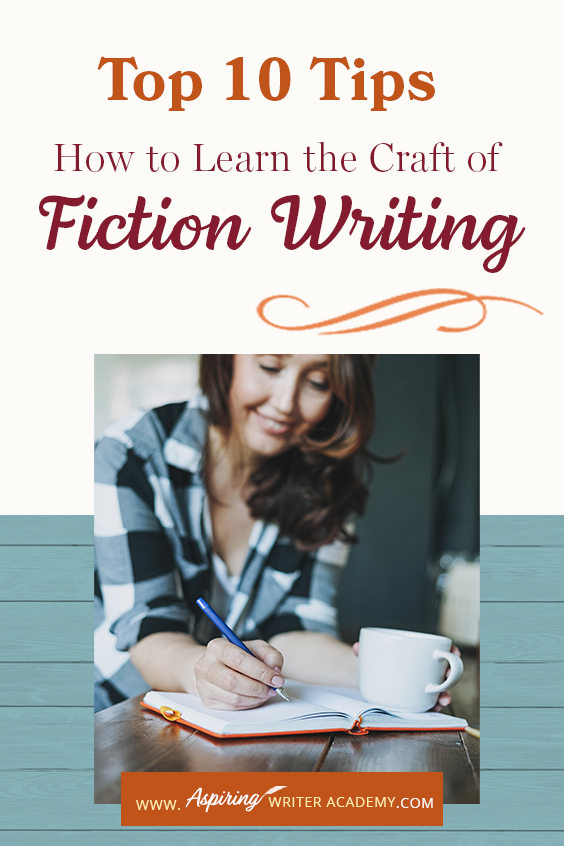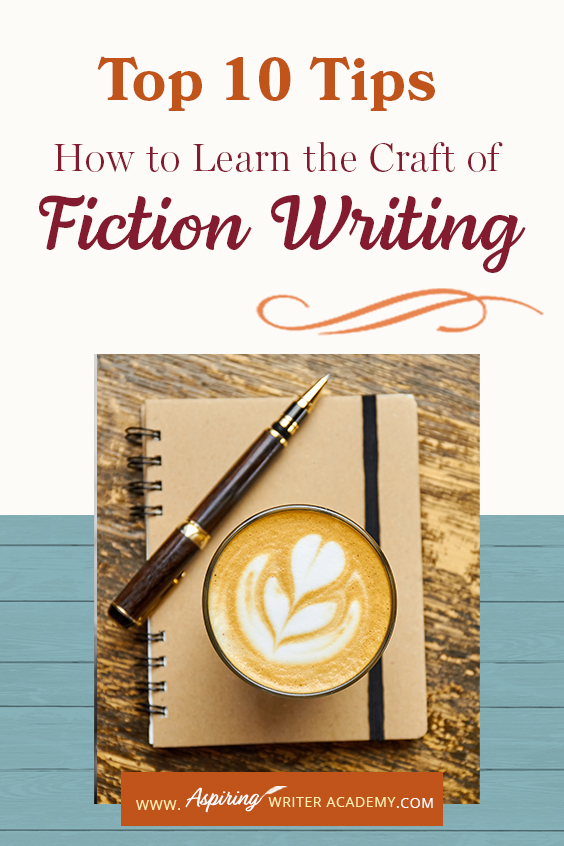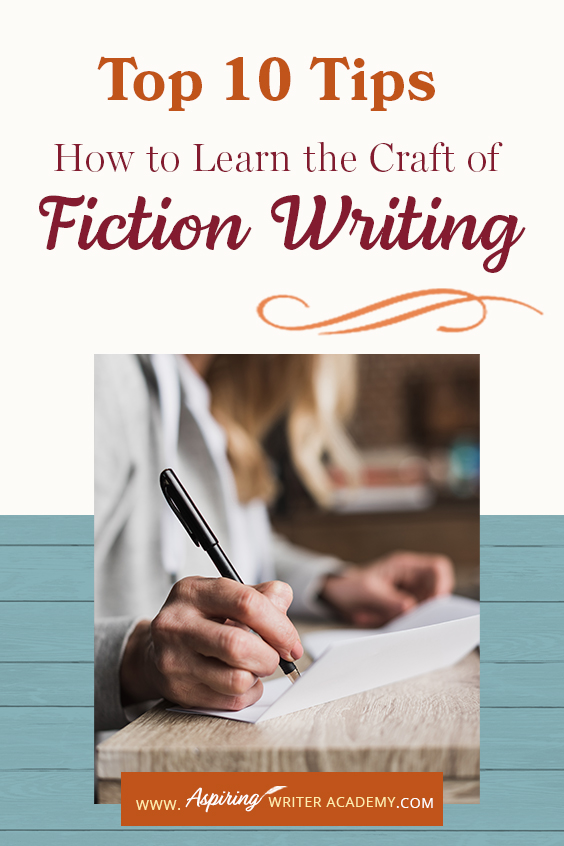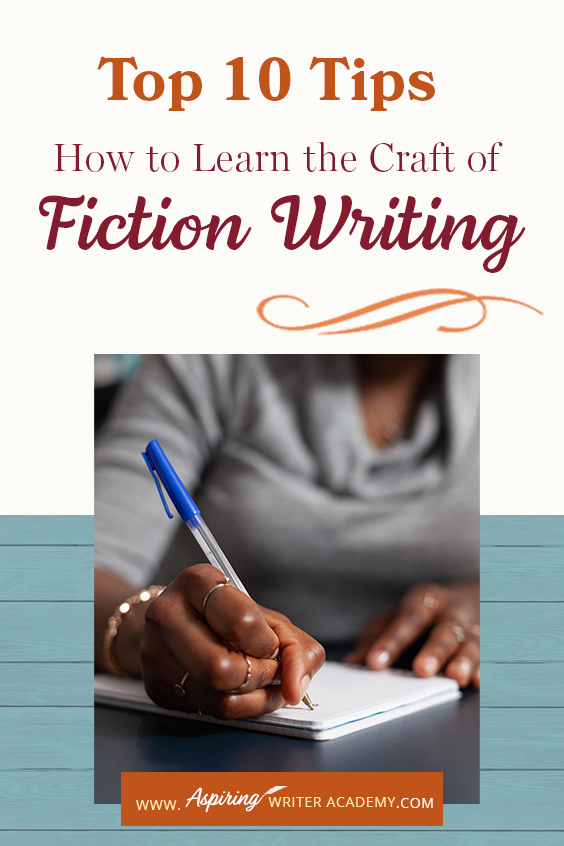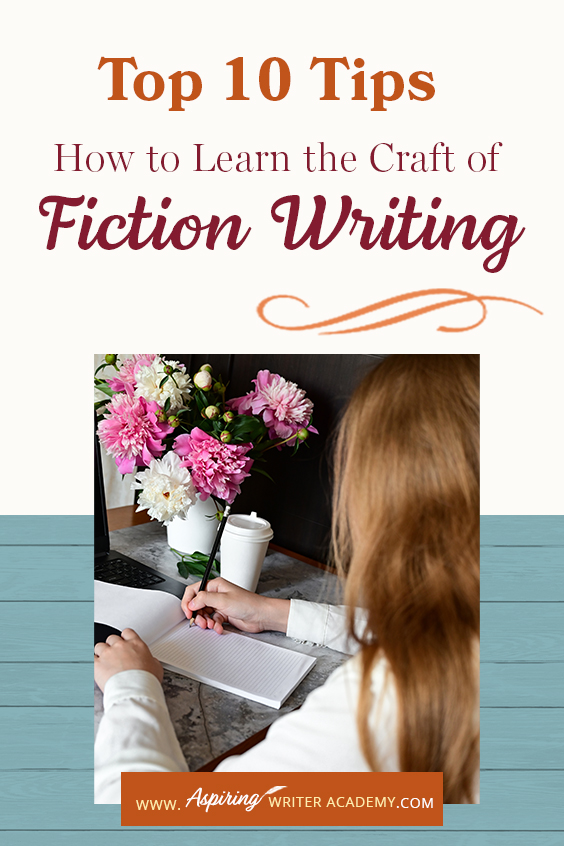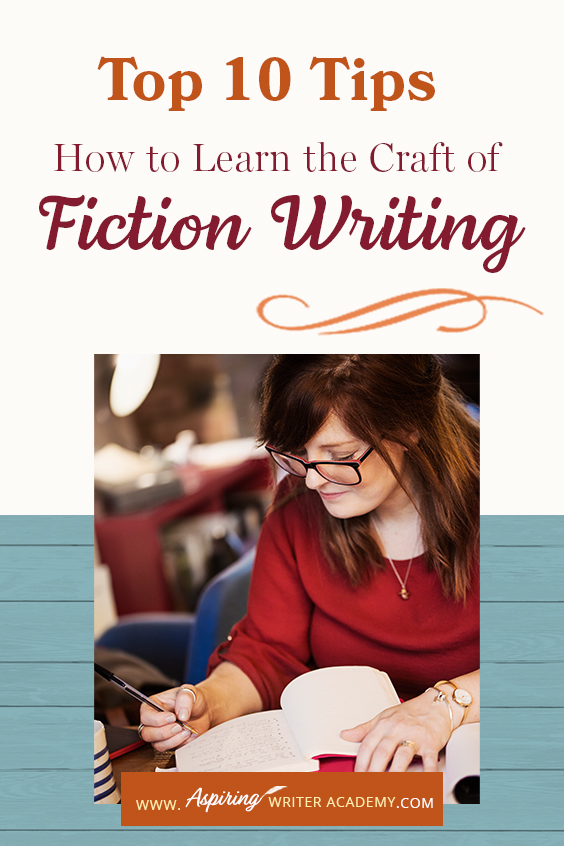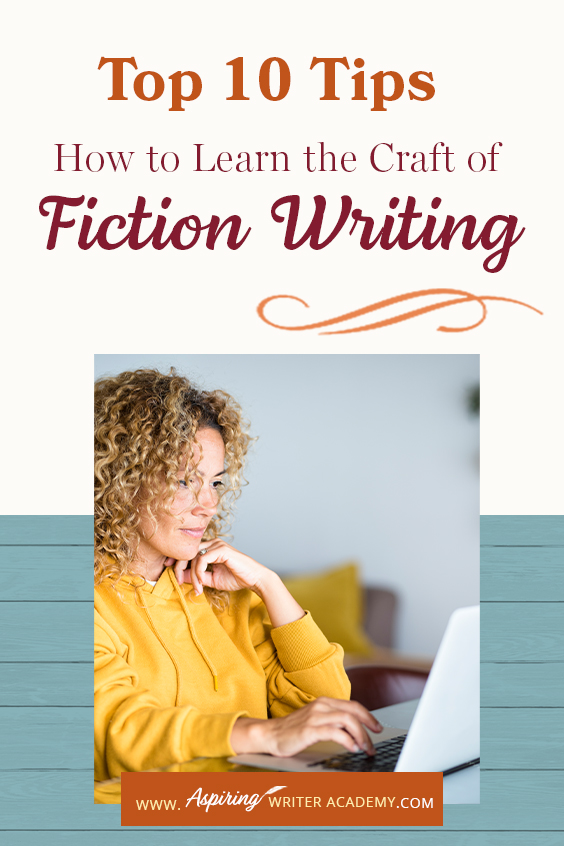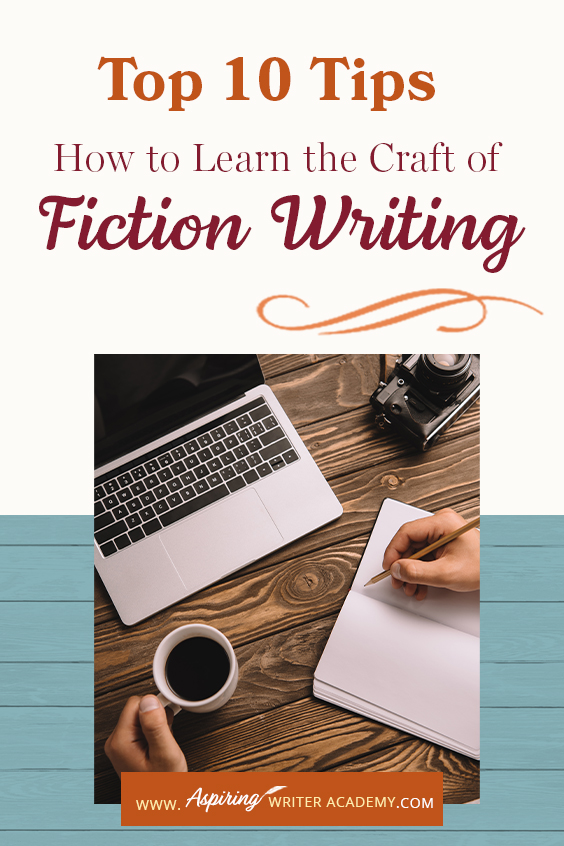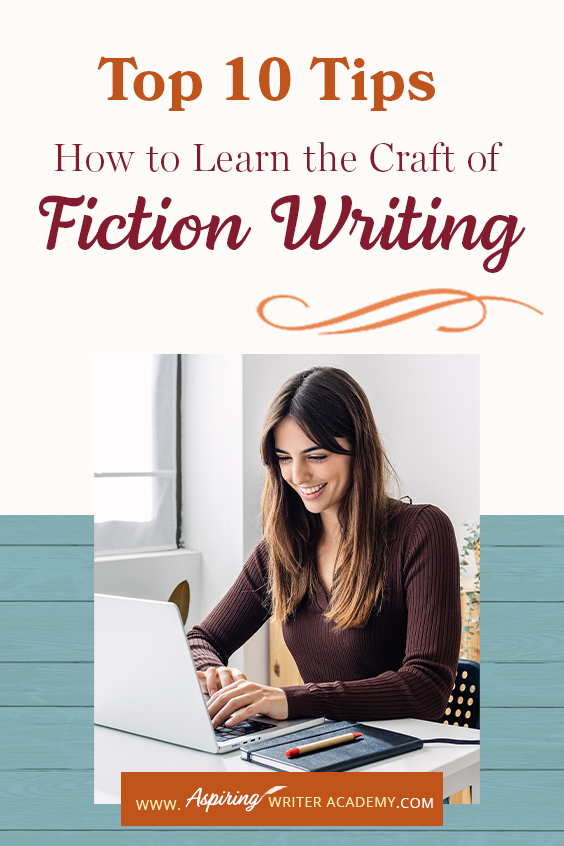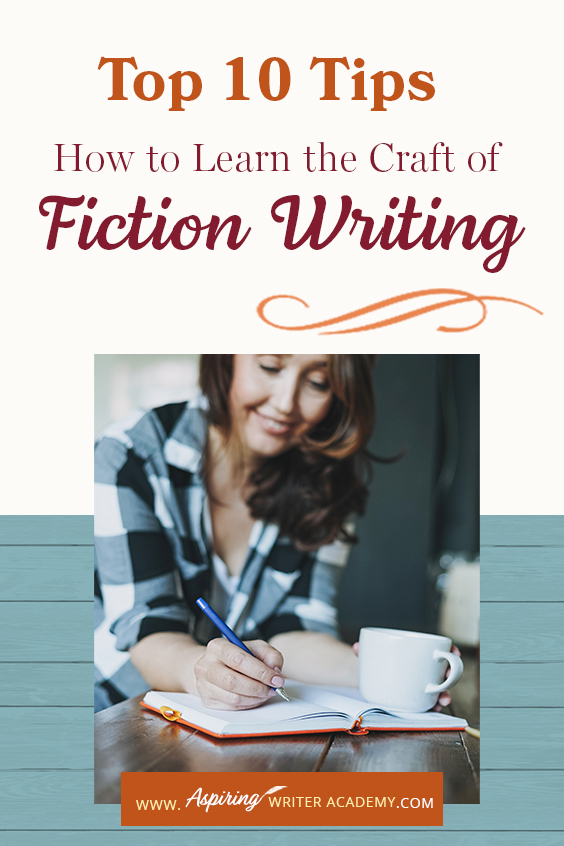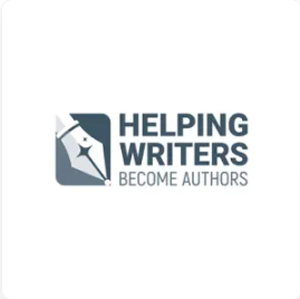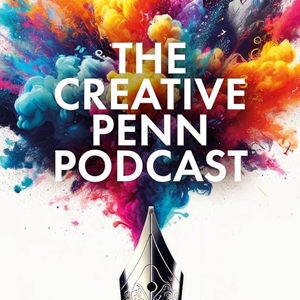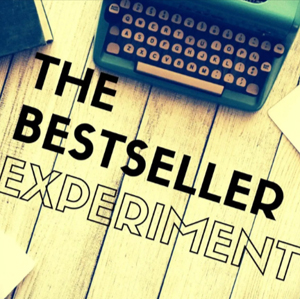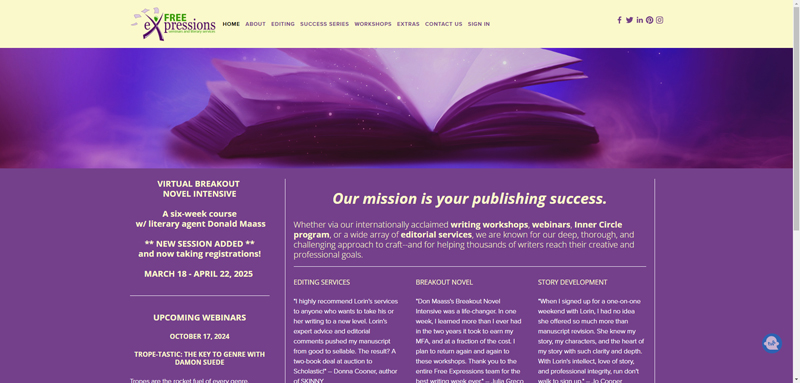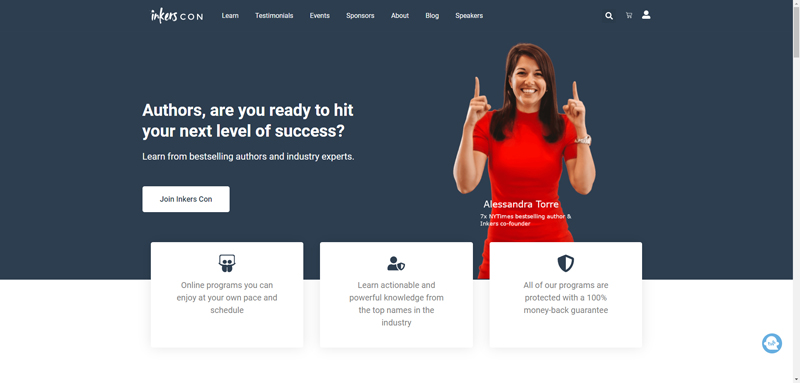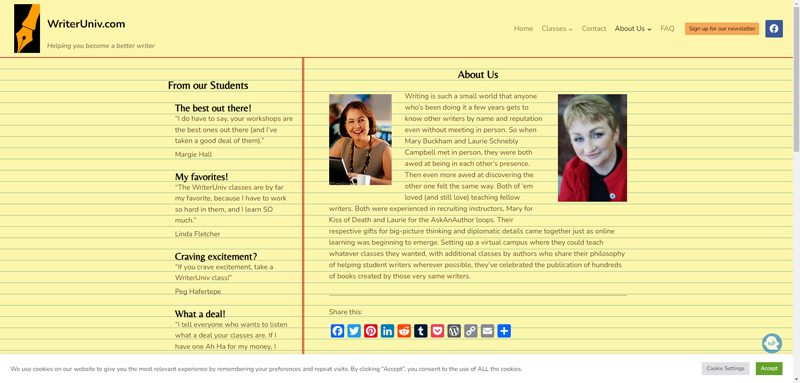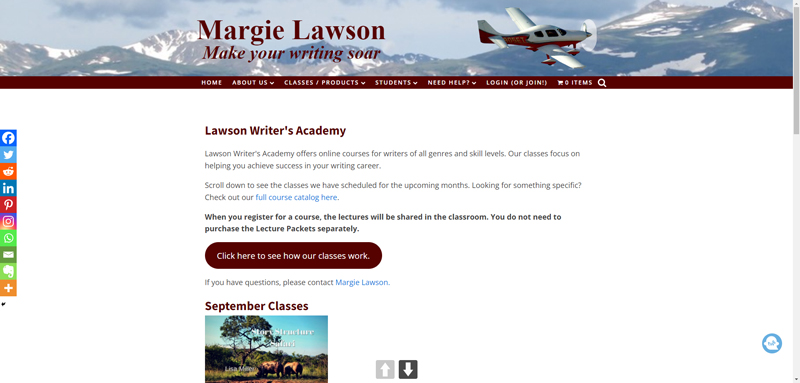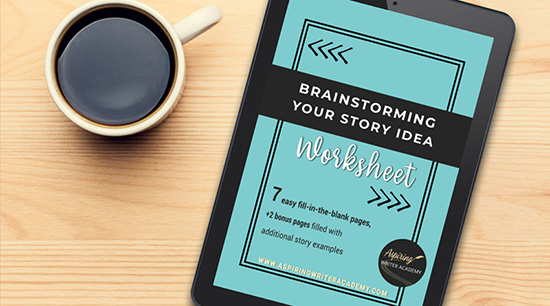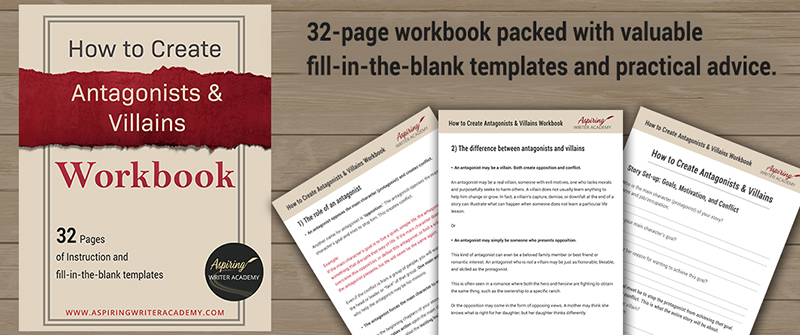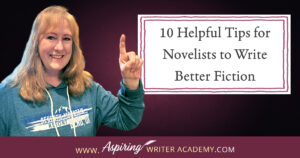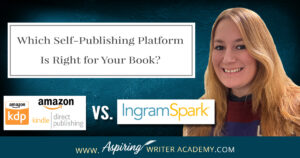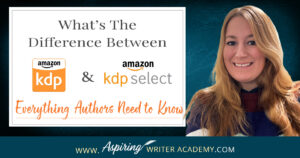Top 10 Tips: How to Learn the Craft of Fiction Writing
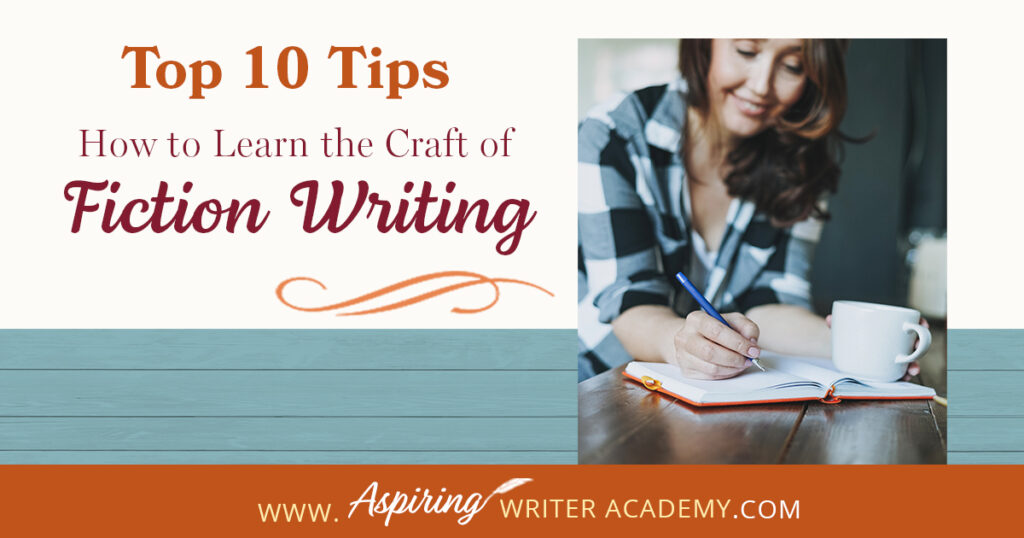
Where do you go to learn the craft of fiction writing? Many writers start a manuscript without any instruction only to lose their way halfway through the novel. Even more frustrating is going to a writer’s conference that focuses on publishing and marketing more than how to write your first book.
In Top 10 Tips: How to Learn the Craft of Fiction Writing we give you links, resources, and valuable information to help you develop your skills and take your writing to the next level.
At Aspiring Writer Academy, we know writing a novel can seem overwhelming, but with perseverance, practice, and a little guidance, we believe you can learn how to write a story you can be proud to call your own.
If you are writing your first book and feel lost or are writing your seventh book and find yourself stuck, or even if you are a seasoned writer and just need a little motivation, our Top 10 Tips: How to Learn the Craft of Fiction Writing should help steer you in the right direction.
Let’s begin!
What is the best way to learn how to write?
1. Read books
First read a book for pleasure, then read it again and analyze how the author introduced the characters and story setting. What details served to bring the setting to life or convey the mood of the story? What kind of conflict and subplots does this story have? What happened to raise the tension or complicate the plot? What was at stake for the characters? How does the author convey the story theme? How does the story end? Was the resolution believable?
Start a book journal to keep all your notes from each book you read in one place. How can you apply some of the techniques learned to your own writing?
2. Watch movies
Again, first watch the movie for pleasure, then watch it again and push the pause button during certain sections, perhaps even rewind, to catch the full impact of certain scenes or bits of dialogue.
Look at the overall structure of the film.
- What happened in the opening scene?
- How was each character introduced?
- What dialogue or body language or lines of dialogue reveal the character’s personality?
- How does the setting impact the plot?
- What items in the setting are important and why? How are these items introduced to the viewer?
- What is the conflict the characters are facing and what is at stake?
- What must the main character do to try to overcome this major problem (conflict)?
- Why does it matter if the character succeeds or fails?
You may want to start a “movie journal” to record all of your findings. Is the structure of the story like other movies? If not, how is this movie different?
You may also be interested in our other blog post, How to Plot Your Fictional Novel (with Free Template Included), where we dive into story structure and offer a free plot sketch template to help you outline your next novel. Check it out here.
3. Read How-To Books on the Craft of Writing
There are hundreds of books which teach various writing skills. Some books aim to teach you how to write a novel, others teach how to plot or how to create characters or how to write good dialogue. Most authors all have a “writer’s bookshelf” or “writer’s library” where they keep all the best how-to books on the craft of writing. Even seasoned authors may go back to them time and time again for inspiration, motivation, or to refresh their writing skills.
Here is a list of how-to resource books that we have compiled at Aspiring Writer Academy to help you get started, although each month new titles are released. You can do a Google search or look up new releases at Amazon or other online retailers.
You may also be interested in our other blog post, 50 Top Resource Books for Fiction Writers, where we share a curated list of must-have books to elevate your writing craft. Check it out here.
4. Watch YouTube Tutorials and Online Webinars
YouTube is a valuable resource for online education. You can find videos on writing, publishing, book formatting, and marketing as well as author interviews and book reviews. YouTube is also a gold mine for conducting research for your fictional novel. You can find almost anything you want to know on YouTube and most of the time it is FREE!
If you’re a fan of learning through YouTube, don’t forget to check out our own channel, Aspiring Writer Academy. We regularly post videos on writing tips, publishing advice, and exclusive author interviews. Subscribe and watch our latest videos here.
5. Read Pinterest Blogs
Did you know that there are hundreds, maybe even thousands, of free blog posts on Pinterest https://www.pinterest.com/ that can help you develop your writing skills? Learn how to write, publish, and promote your novel. Most anything you want to learn about fiction writing, you can learn online.
Also visit the Pinterest Boards of published authors you admire and see how they pin pictures of their book’s setting, possible look-alike images of their characters, and other story details that might interest the reader. Once published, Pinterest is a nice marketing tool.
If you create a ‘hidden board,’ you can use Pinterest to gather images and research materials for your fictional novel as you write to inspire you. Then after your story is published, turn the board to a ‘public’ setting to share with your readers.
6. Listen to Writer Podcasts
Use Google to find podcasts that feature published authors and talk about fiction writing. This is a great resource for those who would rather listen than read a book or watch a video. Many writers listen to podcasts while driving their car or doing household chores, which allows them to save time by doing two things at once.
Here are a few writer podcasts to get you started:
7. Attend Local Author Book Signings & Author Talks or Events
Meet published authors in person and ask them how they got started writing fiction. Can they direct you to any local or online writing groups where you can connect with other writers?
What advice would this published author give to someone just starting out?
Ask questions to help resolve writing issues that are keeping you stuck. Talking to a published author who is more experienced can often help provide you with a breakthrough, a different way of looking at things, or new inspiration.
8. Go to a Writer’s Conference
Consider attending a local conference offering various classes on fiction writing. Conferences also give you the chance to connect with other writers who may give you more insight into writing and publishing than the classes. The best info comes from networking.
You may even have the chance to speak to an editor or agent and ask questions about the writing industry to guide you in the right direction as you write your fictional novel. Conferences can be very motivational, insightful, educational, and jumpstart your writing career.
However, make sure the conference is geared toward fiction writing and/or your specific genre. A conference that offers most classes on non-fiction, memoir, and poetry is not going to benefit a fiction author. A conference focusing on speculative fiction, science fiction, or thriller writing might not be the best place to learn how to write a romantic novel.
If you have never been to a writer’s conference, it is best to attend a smaller, local conference with about 300 attendees or less. Larger, national conferences tend to be too overwhelming for a newer writer.
9. Take an Online Writing Course
There are many valuable fiction writing courses available online. Also, online courses allow you to go over the material at your own pace and often give you templates and worksheets that you can use with each novel you write. Do a Google search to find the right one for you.
Many writing groups and organizations host free classes and webinars for their members each month for Free. The value of the classes is usually well worth the cost of yearly membership. Other groups may require a specified class fee. Consider it an investment in your education.
Writer’s Digest: https://www.writersonlineworkshops.com/
Free Expressions (& courses with Donald Maass):
Inker’s Con Mastermind: https://inkerscon.com/
Bryan Cohen: https://bryancohen.com/
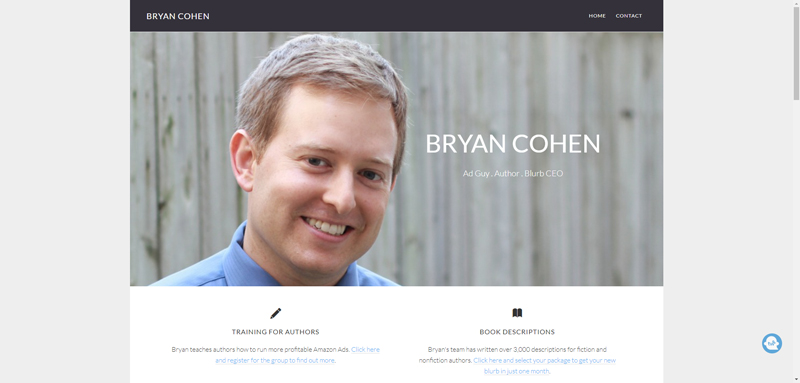
Mary Buckham and Laurie Schnebly Campbell’s Writer University:
Margie Lawson’s Writer Academy:
10. Read Book Reviews
Publisher’s Weekly Magazine https://www.publishersweekly.com/ or the online shorter version, Publisher’s Lunch https://lunch.publishersmarketplace.com/ share reviews on new releases and other valuable information which can help you learn how to strengthen your own writing. You can also read book reviews on Amazon https://www.amazon.com/ at the bottom of each book’s sales page or on Goodreads https://www.goodreads.com/. What did reviewers like about each book? What did they dislike? What weaknesses, if fixed, could have made the book better?
There are also multitudes of review sites online if you Google ‘Book Reviews.’ Many bloggers online, such as ‘Reading is My Superpower’ offer in-depth reviews on new releases, and also feature author interviews. https://readingismysuperpower.org/
You can also check out:
We hope you have enjoyed Top 10 Tips: How to Learn the Craft of Fiction Writing and that you have found some different ways to strengthen your writing skills and take your fictional novel to the next level.
If you have any questions or would like to leave a comment below, we would love to hear from you!
If you like more help developing your story, you may wish to download our Free Brainstorming Your Story Idea Worksheet
Do you find it difficult to create compelling antagonists and villains for your stories? Do your villains feel cartoonish and unbelievable? Do they lack motivation or a specific game plan? Discover the secrets to crafting villains that will stick with your readers long after they finish your story, with our How to Create Antagonists & Villains Workbook.
This 32-page instructional workbook is packed with valuable fill-in-the-blank templates and practical advice to help you create memorable and effective antagonists and villains. Whether you're a seasoned writer or just starting out, this workbook will take your writing to the next level.
We Believe All Authors Can Aspire to Take Their Writing to the Next Level!
Our Goal for Aspiring Writer Academy is to help people learn how to write quality fiction, teach them to publish and promote their work, and to give them the necessary tools to pursue a writing career.
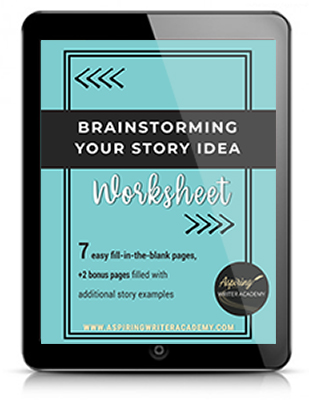
ENTER YOUR EMAIL BELOW
TO GET YOUR FREE
"Brainstorming Your Story Idea Worksheet"
7 easy fill-in-the-blank pages,
+ 2 bonus pages filled with additional story examples.
A valuable tool to develop story plots again and again.
Other Blog Posts You May Like
Why We Started Aspiring Writer Academy: Our Story
100 Essential Writing and Publishing Terms All Authors Should Know
How to Get More Done with a Weekly Writing Plan!
How to Write Your Very First Fiction Novel
A Beginner’s Guide to the Top 10 Genres for Popular Fiction
How to Create a Deadline for Your Fictional Novel
Top 7 Books to Make You a Super-Productive Writer
How to Boost Your Productivity and Get Your Novel Written
How to Create S.M.A.R.T. Goals to Keep Your Writing on Track
How to Find a Writing Group: Tips for New Authors
Finding Your Genre: Tips for New Authors
The Power of Understanding Book Genres for New Authors
The Ultimate List of Book Genres: 95+ Popular Genres & Subgenres
Write Your First Novel: How Do You Start?
Do You Dream of Being a Published Author? (How Bad Do You Want It?)
Who is an ‘Aspiring Writer?’ 3 Tips to Escalate Your Career No Matter What Level You Are At
How to Write the Midpoint of Your Novel (and Avoid a ‘Saggy Middle’)
20 Items to Bring to Your First Writer’s Conference
How to Find a Great Story Idea in 4 Easy Steps
How to Write a Novel While Working Full Time
Slingshot Week: How to Set New Goals for Writing in 2023
The Pros and Cons of Writing Holiday Fiction (Collections & Anthologies)
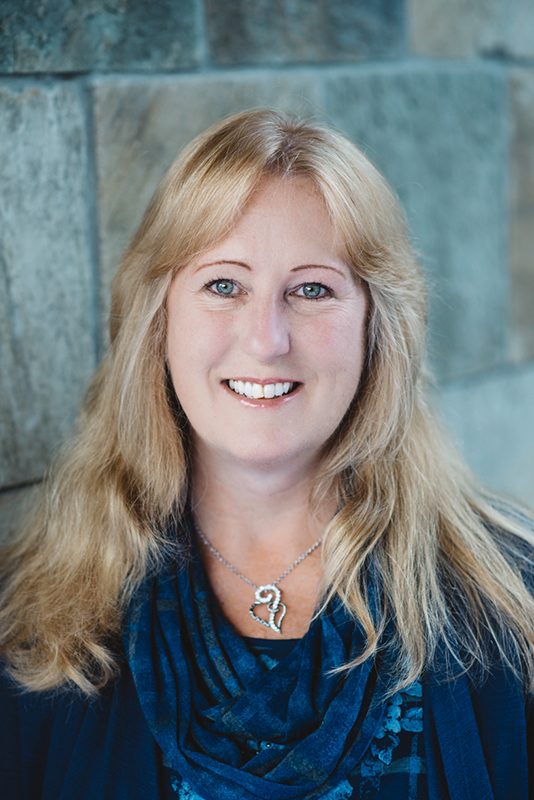
is a multi-published author, speaker, and writing coach. She writes sweet contemporary, inspirational, and historical romance and loves teaching aspiring writers how to write quality fiction. Read her inspiring story of how she published her first book and launched a successful writing career.
